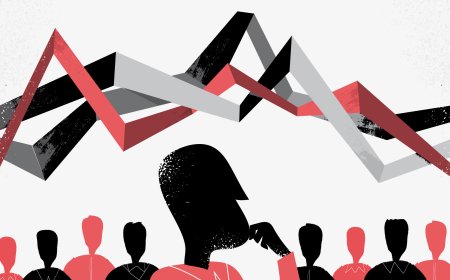How Can We Revive Bangladesh’s Capital Markets?
Identifying the real problems and who should solve them

The key to solving any problem begins with identifying its true nature. When it comes to Bangladesh’s capital markets, there is often a widespread misunderstanding -- not just about the issues themselves, but also about who bears the responsibility for resolving them. Without clarity on both fronts, we risk applying the wrong solutions and pointing fingers in the wrong directions.
In my view, the capital market in Bangladesh faces three core challenges: market integrity, market depth, and demand. Let’s take a closer look at each, along with a discussion of the short-term and long-term paths forward.
Market Integrity: A Regulatory Imperative
The first and perhaps most critical issue is the lack of market integrity. This problem manifests in the form of insider trading, market manipulation, frontrunning, and various principal-agent conflicts. These actions erode investor trust and damage the market’s credibility.
The responsibility for maintaining market integrity lies squarely with the Bangladesh Securities and Exchange Commission (BSEC). While every stakeholder has a role to play, the regulator must lead with robust enforcement, timely investigations, and transparent rule-making. Without trust in the system, neither domestic nor foreign investors will risk their capital.
Market Depth: A Shared Responsibility
The second issue is the lack of market depth. We have too few investable companies, limited product offerings, a small investor base, and an underdeveloped ecosystem. While BSEC holds a significant role in enabling a deeper market -- through better regulation, streamlined IPO processes, and product innovation -- market intermediaries such as brokers, asset managers, and investment banks must also contribute.
Furthermore, fundamental issues like the quality of financial statements and a functioning judicial system are crucial not only for market depth but also for integrity. Without reliable disclosures or legal recourse, investors will stay on the sidelines.
Demand Deficiency: The Neglected Third Pillar
Between January 2018 and June 2025, the Dhaka Stock Exchange (DSE) has seen only one sustained uptrend -- from mid-2020 to late-2021. The rest of the period has been a prolonged bear market that has crushed valuations and turnover. Valuation multiples today are among the lowest I have seen in nearly two decades of observing Bangladesh’s capital markets.
It is important to be precise here: weak demand is a problem, but not one that BSEC is meant to solve. The job of a securities regulator is not to boost prices, but to ensure fair, orderly, and efficient markets. Expecting BSEC to also serve as a cheerleader for stock prices risks creating conflicts with its core regulatory role.
So the natural question arises -- who is responsible for addressing the demand side?
Understanding the Drivers of Weak Demand
There are several clear factors behind the soft demand:
High Interest Rates and Tight Liquidity: With 91-day Treasury bills yielding 12% and inflation at around 9%, fixed income instruments have become extremely attractive. Liquidity in the system is tight, and risk capital is scarce.
Prolonged Bear Market Psychology: Years of market declines have created a reflexive downward cycle. Falling prices lead to margin calls, which in turn lead to more selling, panic, and desperation -- fueling further declines.
Lack of Institutional Investors: Frontier markets have underperformed globally for more than a decade, leading to persistent equity outflows from Bangladesh. The local asset management industry is too small and undercapitalized to pick up the slack.
Retail-Dominated Market Structure: In the absence of strong institutional players, retail investors dominate. They are often speculative, short-term focused, and susceptible to pump-and-dump schemes. They lack both the training and the protection needed to invest confidently.
What Can Be Done in the Short Term?
Two broad policy options exist:
Option 1: Focus on Macroeconomic Stability
The current interim government seems to have taken this path. As foreign exchange reserves build and inflation cools, Bangladesh Bank will eventually cut interest rates. This will free up liquidity, lower the risk-free rate, and make equities more attractive.
There is nothing inherently wrong with this strategy. However, it could take time -- leaving brokers, investors, and the broader ecosystem to struggle through months or even years of stagnation.
Option 2: Targeted Market Intervention
An alternative is for the government to establish a small sovereign equity fund. This would not be a bailout, but a strategic investment initiative to purchase severely undervalued companies.
The concept is sound but execution is everything. Historically, the Investment Corporation of Bangladesh (ICB) played this role, but poor governance led to the depletion of its capital. If such a fund is to succeed, the government must appoint professional asset managers based on merit and ethics -- not political connections. Building the capability to evaluate, select, and oversee these managers is key.
Long-Term Solutions for Sustainable Demand
While short-term measures help cushion the fall, building long-term, sustainable demand is the only true fix. Here’s how that can be done:
Develop the Investment Management Industry
Asset managers act as intermediaries between retail savings and capital markets. Growing this industry -- with strong governance -- is essential. Regulatory bottlenecks must be removed to allow innovation and expansion.
Strengthen Distribution Channels
Banks in Bangladesh have successfully distributed insurance products. A similar model can be used to distribute mutual funds and other investment products. This benefits both banks and asset managers while broadening investor access.
Build a Functional National Pension Scheme
In most developed economies, people gain exposure to financial markets through national and employer-based pension schemes. Bangladesh’s public pension framework is nascent and overly risk-averse. Over time, the pension authority must build the capacity to invest in diversified portfolios, including equities, or outsource to skilled managers.
Professionalize Private Pension Management
Most private provident and gratuity funds in Bangladesh are managed internally by company staff without investment expertise. These funds default to short-term government securities, ignoring their long-term liabilities. Professionalizing this space would unlock vast pools of long-duration capital.
Clean Up the Insurance Sector
Governance issues in insurance mirror those in banking. While fixing the banking sector has taken precedence, insurance must be next. A healthy insurance sector can be a major source of long-term investment capital.
Encourage Family Office Development
Wealthy families often leave large sums idle or poorly allocated. The private sector, in collaboration with regulators and asset managers, should educate and encourage families to establish professional investment offices.
There is no silver bullet to solve the complex challenges facing Bangladesh’s capital markets. However, with clarity of diagnosis and appropriate division of responsibility, we can begin to address these problems systematically. Regulators must uphold integrity, intermediaries must deepen the market, and the government can help revive demand through both macro stability and targeted measures. In the long term, building a broad and capable investment ecosystem -- pension funds, mutual funds, insurance companies, and family offices is the only sustainable way forward.
The sooner we align on these fundamentals, the sooner Bangladesh’s capital markets can reach their true potential.
Asif Khan is the Chairman at EDGE AMC Limited and President, CFA Society Bangladesh.
What's Your Reaction?

















































































